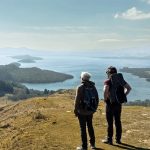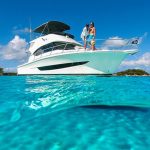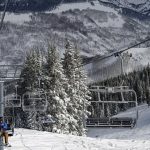The Rossignol Group, parent of the Rossignol, Dynastar, Lange, Look, and Kerma brands, reported that revenue increased 28 percent to €401 million for the 12-month financial year period ended March 31, 2023, compared to €313 million in revenue for the prior year.
The Rossignol Group grew across all markets (+36 percent in France, +39 percent in Europe, +16 percent in North America, and +10 percent in Asia) and distribution channels and developed well in winter sports equipment and the apparel/footwear category.
The company said the strong market recovery observed during winter 2021/22 continued in the 2022/23 season. Despite variable snow conditions at different periods and geographic areas, the Rossignol Group said it took advantage of the high traffic in ski resorts and the increased appeal of the mountains and its benefits.
“I am extremely proud of our teams’ outstanding work over the past two years, which has led to a solid financial and commercial strengthening of the Rossignol Group,” said Vincent Wauters, CEO of Rossignol Group. “Thanks to their collective talent and their unwavering commitment, we have achieved a record year and a spectacular rebound in only 24 months. We have therefore passed the milestone of €400 million in revenue in advance of our Ascension 2026 Strategic Plan, with a strong increase in revenue and margin since 2021. This will therefore be a record year, far exceeding our best performances pre-COVID. We are building on these collective performances and the return to a positive net result to pursue our deployment and our investments for the future with confidence and peace of mind.”
In November 2022, the Rossignol Group reported its intention to achieve €500 million in revenue in 2026 while deploying its environmental and social commitments through its Ascension 2026 strategic plan. The main thrust of its plan is to “reconcile qualitative growth, industrial performance and a more sustainable approach.”
To support its new ambition, the Group announced a global investment envelope of €50 million by 2026, including €27 million of industrial investments, €15 million of which is linked to its Respect environmental progress program. Forty percent of these investments were initiated. For example, installing solar panels in its Artés plant in Spain, optimizing industrial processes to reduce waste production, and energy transition investments in its Sallanches manufacturing site from 2024.
In Fall 2022, the Rossignol Group announced it would accelerate its production commitment to a circular economy that is more responsible for the company and the environment and would support the transformation of its manufacturing base. Its key focus included reinforcing the Group’s investing in the Sallanches site in Haute-Savoie, aimed at making the plant “the world’s leading factory for eco-designed and recyclable skis and a center of expertise for repair and second life.”
The Rossignol Group also reported recently taking another significant step in its sustainable development policy by investing in its poplar plantation in Spain in 2023 to place a full cycle, in a short-circuit, circular approach, from planting to production and up to the stage of recovering materials at product end-of-life and recycling. This plantation would directly supply the two ski factories in Artés (Spain) and Sallanches (France), to cover 50 percent of its annual requirement for wood. This operation is part of a 15-year cycle to plant a forest of more than 50,000 trees on a currently treeless site and to capture a total of 14,000 tonnes of CO2.
Rossignol has also collaborated with Fairly Made to improve the traceability of its textile products and to better understand their footprint: transparency as to their sourcing, manufacturing and environmental impacts, and to find areas for improvement for our future products. Rossignol’s Spring-Summer 2023 collection will feature a QR Code on labels that consumers can scan to find this information.
The Rossignol Group is therefore continuing its efforts to achieve its objectives in the coming years: from reducing its waste (-40 percent by 2025) to reducing its carbon footprint (-30 percent by 2030), and including a more responsible ski offer, an enhanced four-season Clothing & Footwear offer, and the deployment of its omnichannel strategy. All the indicators are positive for the Group’s accelerated transition and its foothold in the mountains all year round.
Founded 116 years ago in the French Alps, and now a global reference in winter and mountain sports, the Group is driven by its product expertise, competitive success, the successful diversification of its offer and its commitment to sustainable development. By 2026, Rossignol plans to generate close to 30 percent of its business through its clothing and footwear offerings, by continuing to develop products for year-round, multi-sport activities. The Group also aims to develop one-third of its ski ranges within a circular economy approach by 2028.













